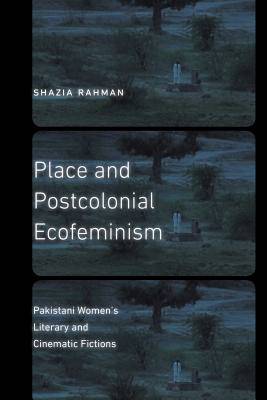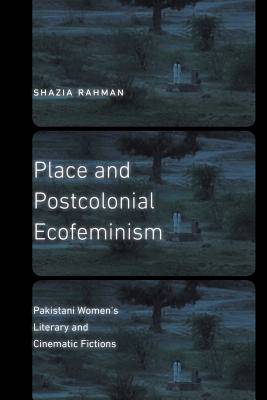
- Retrait gratuit dans votre magasin Club
- 7.000.000 titres dans notre catalogue
- Payer en toute sécurité
- Toujours un magasin près de chez vous
- Retrait gratuit dans votre magasin Club
- 7.000.0000 titres dans notre catalogue
- Payer en toute sécurité
- Toujours un magasin près de chez vous
Description
Place and Postcolonial Ecofeminism provides a nuanced analysis of Pakistani women's lives, particularly in terms of how they engage with the environment, through readings of their literary and cinematic fictions. Shazia Rahman demonstrates the ways in which these women explore alternative, environmental means of belonging, examines the vitality of place-based identities within Pakistani culture, and, as such, contributes to evolving understandings of Pakistani women--both in relation to their environment as well as to various discourses of nation and patriarchy.
Deploying a postcolonial, ecofeminist approach, Place and Postcolonial Ecofeminism allows theories of space and place-based identities to supply a framework for exploring everyday practices represented within Pakistani women's film and literature--the material reality of how people live among each other, deal with their environment, and intuit their relationship with the spiritual. By analyzing the cinematic and literary fictions that portray Pakistani women's engagements with the more-than-human environment, Rahman explains how nationalist and religious identifications exist simultaneously with less visible narratives of belonging, thereby enriching the understanding of the ways Pakistani women explore alternative, environmental ways of inclusion in order to counter dominant discourses of religious nationalism and global Islam.
Spécifications
Parties prenantes
- Auteur(s) :
- Editeur:
Contenu
- Nombre de pages :
- 246
- Langue:
- Anglais
- Collection :
Caractéristiques
- EAN:
- 9781496215123
- Date de parution :
- 01-08-19
- Format:
- Livre broché
- Format numérique:
- Trade paperback (VS)
- Dimensions :
- 152 mm x 229 mm
- Poids :
- 362 g

Les avis
Nous publions uniquement les avis qui respectent les conditions requises. Consultez nos conditions pour les avis.






